This story is part of our Rainbow Rewind 2019 series—looking back at the past year and decade in politics, health, culture and more.
Historically, LGBTQ2 cinema has had its ups and downs, with harmful, problematic stories (especially ones that centred women) saturating the genre. But in the past ten years, we saw some narrative outliers that challenge the ways women loving women are normally depicted on screen. There were some hits (Carol, The Kids Are Alright, Days of Mercy), and yes, some enormous misses (Nurse 3D, Elena Undone, Blue Is The Warmest Color). But overwhelmingly, Hollywood execs are learning they don’t have to rely on dangerous stereotypes or queerbaiting to tell a good story.
Here were some women-loving-women films—aside from Carol—from the 2010s that defied expectations.
Love is a political statement in Rafiki (2018)
Wanuri Kahiu’s Rafiki (2018) is a political statement—a revolution, if you will. This story centres around Kena (Samantha Mugatsia) and Ziki (Sheila Munyiva), two young women who are polar opposites living in Nairobi, Kenya. What starts as friendship blossoms into a love affair that changes their lives. Due to the societal stigma around homosexuality, they have to keep their love a secret.
Despite homosexuality being illegal in Kenya, and Rafiki being banned from screening in theatres across the country, it became the first Kenyan film selected to compete at the Cannes film festival. Rafiki deserves props for persevering despite the odds stacked against it.
When women are in charge of telling their own stories, you get films like Portrait of a Lady on Fire (2019)
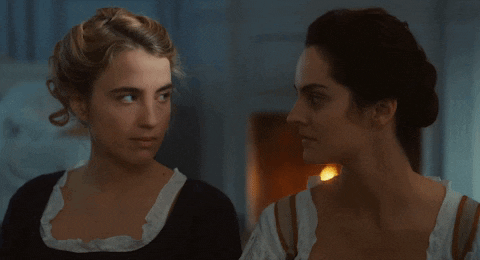
Portrait of a Lady on Fire (2019) is the 18th-century French romance drama about two women falling in love despite the social restraints set against them. Marianne (Noémie Merlant) is an artist hired by a countess to paint her daughter Heloise’s (Adèle Haenel) wedding portrait in secret. Once the truth is revealed about who Marianne is, their love develops out of curiosity for their circumstances and their love of art.
Despite its limited run in theatres, Portrait of a Lady on Fire helped revive the discussion about the female gaze in cinema. Historical depictions of lesbianism aren’t new, but many of these films (such as Farewell My Queen) are told from the male perspective. With Céline Sciamma’s direction, the differences in the way the women move, speak and even kiss are glaringly obvious. As one of the highest-rated lesbian films on Rotten Tomatoes, it looks like when women are in charge of telling their own stories, they’re narratives not just men can enjoy watching.
Pariah (2011) amplifies the intersections of sex, race, and class
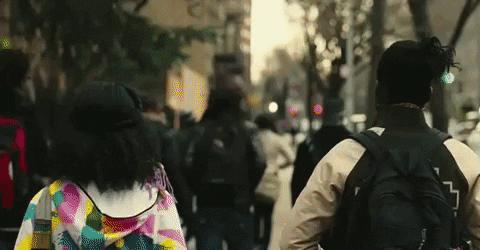
Alike (Adepero Oduye) is a 17-year-old lesbian who comes from a middle-class family, and she has a lot going on: She’s figuring out how to come out to her parents, who think she dresses too much like a man. Then there is the pressure of starting college, along with trying to pursue a new love interest that sends her mixed signals. To escape her hectic reality, Alike immerses herself in poetry as she searches for her life purpose. When she finally stops listening to the chatter of her influencers, she carves a clear path for herself.
Dee Rees’ 2011 film is one of the pillars of modern LGBTQ2 cinema at the intersection of race, sex and class. Existing in a Black, blue-collar space, Alike and her queerness are still taboo within the culture, so there’s an extra layer of shame and pressure that exist. Alike also presents masculine, which comes with its own set of challenges. The willingness to interrogate those intersections are what makes Pariah so watchable and relatable.
Disobedience (2017) explores the realities of queer religious women
In Disobedience, Ronit (Rachel Weisz) is a New York-based photographer who returns to the orthodox Jewish community where she grew up after learning of her estranged father’s death. She reunites with Esti (Rachel McAdams), a childhood friend, who Ronit was caught kissing. Homosexuality in any form is frowned upon, and because of the kiss with Esti, she is exiled. Even though Esti is now married to a man, when the two women reconnect, they forgo tradition in favor of reigniting old feelings.
Disobedience covers fresh territory by exploring the cross-sections of Judaism and lesbianism. This subset of Judaism is insular, but director Sebastián Lelio does an excellent job at subtly educating the audience about orthodox traditions, and how those traditions intersect with queerness.
The Handmaiden (2016) intrigues—with a queer twist
The Handmaiden is a stylish 2016 thriller filled with murder, intrigue and double-crosses. The film serves as an adaptation of Sarah Waters 2002 book Fingersmith. Two women, Japanese Lady Hideko (Kim Min-hee) and Sook-Hee (Kim Tae-ri), are on opposite ends of the class spectrum but are brought together by a scheme set in motion by Korean con man Count Fujiwara (Ha Jung-woo). In the midst of trying to scam one another, they fall in love, and all hell breaks loose.
Director Park Chan-wook has never been one to hold back on depravity and sexuality in his films (think of Oldboy or Thirst), and The Handmaiden is no exception. Chan-wook enjoys putting women at the centre of his movies, and shockingly nails most of the feminist, queer beats without being problematic or tropy. No shade, but this is a rare feat for a male director. More often than not, male directors go by what they see and not what they know about queer women’s relationships—but Park Chan-wook does his homework.
Duke of Burgundy (2014) shows a plot rarely seen in films about women
From the mind of Peter Strickland comes Duke of Burgundy, a 2014 film about two women and their connection to BDSM culture. Lepidopterology, the study of moths and butterflies, is what brings Evelyn (Chiara D’Anna) and Cynthia (Sidse Babett Knudsen) together. The two become romantically involved and develop a subservient (Evelyn) and dominant (Cynthia) relationship for sexual pleasure. Everything isn’t what it seems, however, as their arrangement challenges the norms of what dom/sub relationships should look like.
Strickland was bold enough to write a story that explores BDSM between two women when it’s usually just seen from a male dom/female sub perspective like 50 Shades of Grey. As Strickland’s first breakout hit, Duke of Burgundy has a gothic style that adds an air of mystery to this unusual love story. With his eclectic filmography (his latest film In Fabric centres on a dress that literally kills people), the director isn’t afraid to rebel against the Hollywood status quo.
The Favourite (2018) is a period comedy that brings the drama
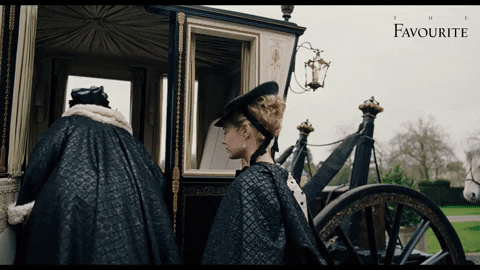
It’s 18th-century England, and the country is at war with France. Queen Anne (Olivia Colman) is too sick and aloof to tend to matters of state, so her close friend Lady Sarah (Rachel Weisz) governs the country in her place. Amid the royal chaos, Lady Sarah’s cousin Abigail (Emma Stone) arrives at the palace looking for work. Abigail is hired and given menial work until a chance encounter connects her to the queen, who soon takes a liking to the young girl. A bitter war for the queen’s sexual and emotional attention ensues between the cousins with hilarious and sometimes tragic results.
A lesbian comedy that takes place during the 18th century seems like something Virginia Woolf would write. But screenwriters Deborah Davis and Tony McNamara revel in director Yorgos Lanthimos’ penchant for the macabre, making this 2018 film one of the most memorable of the decade. Critics certainly thought so, too: Colman nabbed the Best Actress win at the Oscars for her role earlier this year.
Thelma (2017) shows queerness is power
Thelma (Eili Harboe) is a lesbian, and she’s afraid of her über-religious parents. At school, she meets Anja (Kaya Wilkins), and the two develop feelings for one another. Any attempts to establish a more profound connection, however, are met with anxiety and dangerous telekinetic convulsions. Sexual desire turns into a violent bodily reaction that gets worse with time.
Director Joachim Trier inadvertently turns Thelma’s queerness into a superpower. Her attraction to Anja is never played up for laughs or to be titillating to men, but instead to tell a story about how suppressing who you really are can be destructive. This is the perfect film for anyone who broke free from something held deep down that nearly ruined them.
The Miseducation of Cameron Post (2018) assures there’s nothing wrong to be who you are
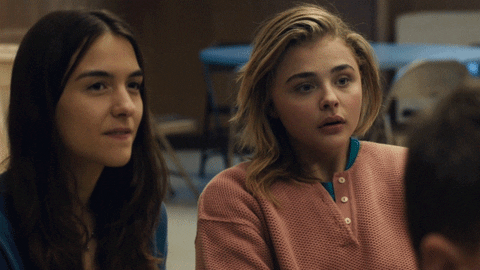
The Miseducation of Cameron Post is an adaptation of a book of the same name by Emily M. Danforth. The 2018 film is centred around Cameron (Chloë Grace Moretz) and her time at a Christian conversation camp for teens who identify as LGBTQ2. The focus of the film is the bond between Cameron and the other teens at the camp, and how they rely on one another for solace and escape until they can be released.
Writer/director Desiree Akhavan (who identifies as bisexual) has a personal connection to the material. With such a heavy topic such as conversation therapy, Akhavan succeeds at injecting some levity into an intense subject—but not in a way that turns it into a joke. The difference between Miseducation and a film like 2018’s Boy Erased is that the main character makes the best of a bad situation by building community and reveling in moments of positivity, wherever positive moments it can be found.
Love Song (2016) proves that love is better felt
An impromptu road trip between college friends leads to an admission of love, where love isn’t expressed with words but with body language. There isn’t much dialogue between the main characters in the 2016 film Love Song. Most of the time characters Sarah (Riley Keough) and Mindy (Jena Malone) stare longingly at one another, which is refreshing. Their sexual tension is built on a sense of longing, intense staring and silence.
The biggest draw for Love Song is the way director So Yong Kim chronicles the intimate relationship between two bisexual women. In cinema for the last 10 years, positive depictions of bisexual women are scarce, but Love Song doesn’t rely on harmful tropes to get the point across. The main characters aren’t shamed for how they love; in fact, it isn’t brought up but is rather something the audience gets to see happen. Keough and Malone have enormous chemistry, and their acting elevates the material.

For more culture coverage every week, subscribe to Xtra Weekly—your dose of world news, culture, longreads and more delivered straight to your inbox.

This story is part of our Rainbow Rewind 2019 series—looking back at the past year and decade in politics, health, culture and more.
Legacy: December 23, 2019 11:15 amAn earlier version of this story incorrectly stated the class category of the character Alike in the film Pariah. She is from a middle-class family.
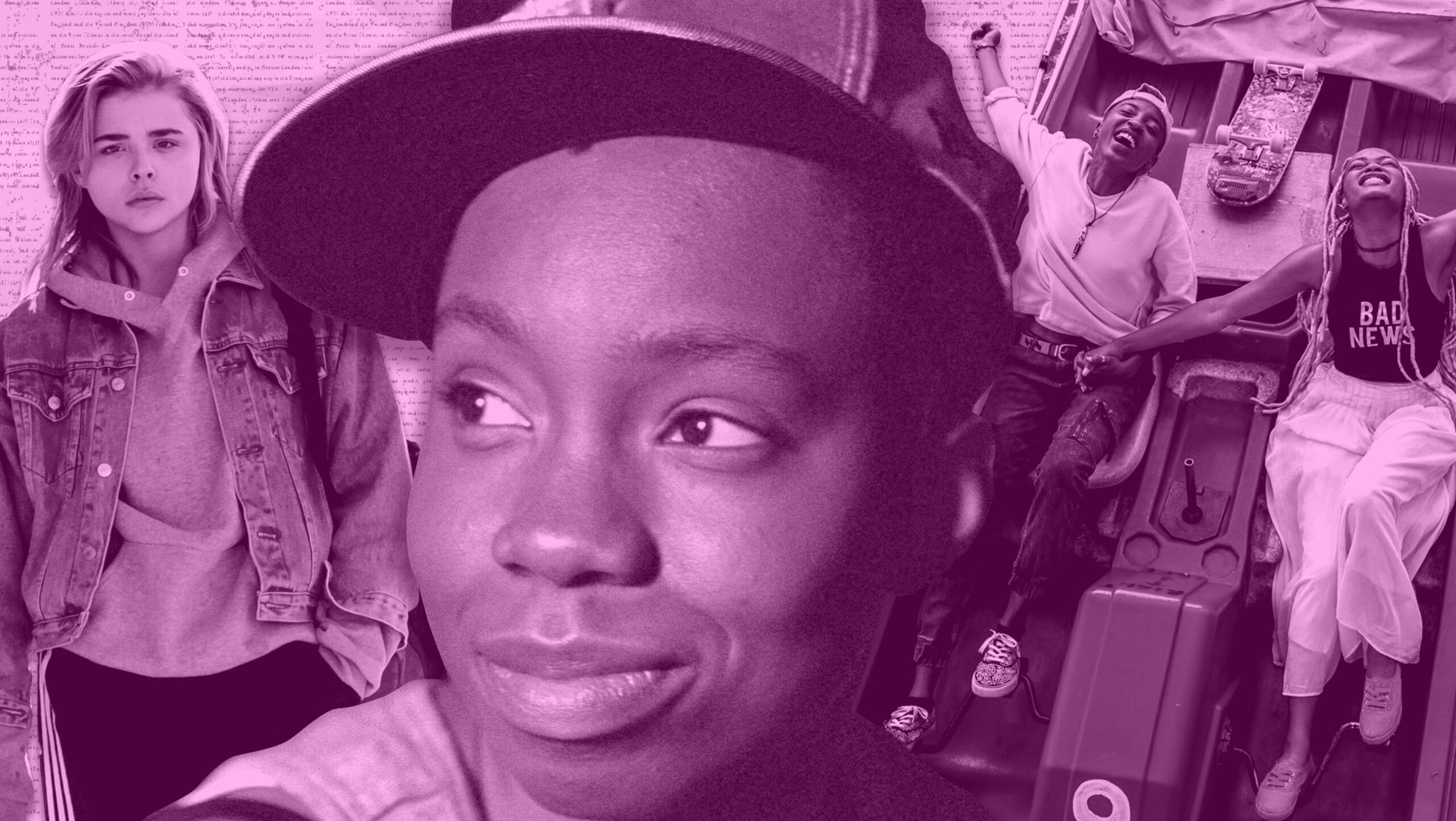

 Why you can trust Xtra
Why you can trust Xtra


